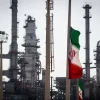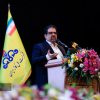Saudi Aramco is reportedly finalizing a landmark deal worth approximately $10 billion with a consortium led by U.S. investment giant BlackRock, marking a significant investment into the infrastructure of the Jafurah shale gas field, the largest non-U.S. shale gas development project.
New Financing Model Without Divesting Strategic Assets
According to informed sources, this agreement continues a trend among Gulf oil producers to attract foreign capital without selling off critical state-owned assets. Instead, structures like long-term leasebacks and financial partnerships allow for capital inflows while retaining state ownership.
The model closely mirrors Aramco’s 2021 transactions, in which BlackRock and other global investors acquired stakes in Aramco’s oil and gas pipeline infrastructure. In that deal, Aramco maintained ownership while investors earned revenues from pipeline usage tariffs.
It’s expected that the new Jafurah transaction will be backed by assets such as gas pipelines and processing facilities, following a similar revenue-sharing structure.
So far, no official timeline has been announced for the finalization of the agreement, and both Aramco and BlackRock have declined public comment.
Jafurah: A Strategic Project in Saudi Arabia’s Gas Ambitions
Valued at over $100 billion, the Jafurah gas project is a cornerstone of Aramco’s long-term strategy to position Saudi Arabia as a major global player in the natural gas market.
The company aims to increase gas production capacity by 60% by 2030 compared to 2021 levels. As Saudi Arabia looks to diversify its economy and reduce dependency on oil, Jafurah is seen as a key component of this transition.
Declining global demand, oil price volatility, and rising supply from **OPEC members—including Saudi Arabia itself—**have all accelerated the kingdom’s push toward non-oil revenue streams.
In line with this diversification, Reuters previously reported that Aramco may also be planning to sell up to five gas-fired power plants to raise additional funds.
In 2021, Aramco sold minority stakes in its pipeline subsidiaries to BlackRock and EIG, while retaining 51% control. The assets were then leased back to Aramco under 20-year agreements.
This model—known as “lease and leaseback”—allowed investors to receive fixed returns from usage tariffs without gaining operational control. The underlying structure resembles asset-backed securitization more than asset sales.
As Robin Mills, CEO of Qamar Energy, put it:
“These deals were more like debt instruments than asset divestments. Aramco remained the owner of the infrastructure.”
Importantly, Aramco committed to a minimum throughput guarantee to ensure steady revenues for investors. Similar models have also been implemented in the UAE, where ADNOC sold minority stakes in its pipelines to international investors.
Contracting Giants Compete for Jafurah Phase Two
Two years ago, Aramco initiated the second development phase of the Jafurah project, sparking fierce competition among leading international EPC contractors. The total value of key EPC packages was estimated at over $6 billion.
At that time, Aramco issued Expressions of Interest (EOIs) for several engineering, procurement, and construction (EPC) packages, with official tendering expected shortly thereafter.
Jafurah, which is being developed in phased stages, is expected to reach 2 billion cubic feet per day of gas production by 2030. The project is central to Aramco’s gas strategy and Saudi Arabia’s broader Vision 2030 energy roadmap.






